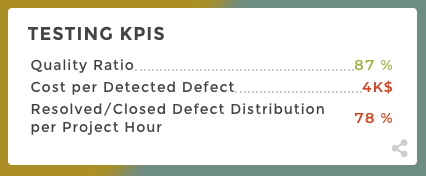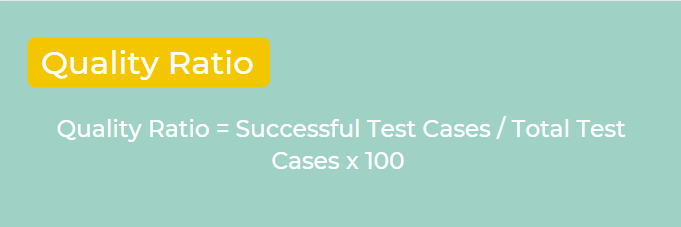Software Testing KPIs - Why should you use them?
Product testing is essential to any stable and well-functioning offering. Your end-users' product experience is ultimately what grows a business, and product testing is conducted to achieve the primary goal of surpassing the end-users' expectations. Developer teams test products daily to find bugs and other stability issues, troubleshooting ways to patch inconsistencies.
Metrics are necessary for any dev ops team; however, metrics can harmful if they aren't well thought out. For example, if metrics are set to achieve an unattainable goal in a short-time period, your product may end up being worse because of a disconnect between management and the team.
Team velocity is one of the most common metrics to track in agile environments. Team velocity tracks how many story points a team tackles during a sprint. Story points reward team members for solving problems based on difficulty, emphasizing efficiency over time spent. This metric is calculated at the end of a sprint and can provide valuable insights for future projects and product testing.
Although team velocity is one of the most important software testing KPIs to track, here are the two most important categories of KPIs that software development/testing departments track to ensure a product is performing to its maximum potential.

Effort KPIs
Effort KPIs help software testers to understand the amount of effort expended as it relates to the total number of defects found. Here are the most important KPIs to track effort:
- Total Test Effort and Test Efficiency: This KPI combines team schedules and cost variances to display how a team is allocating its resources.
- Test Execution Metrics: Execution is key, and this KPI measures how many tests have passed, failed, are in progress, or blocked.
- Defect Turnaround Time: Tracking defect turnaround time allows testing departments to track how long on average a developer takes to fix a defect. If your Defect Turnaround Time is less than or greater than 1, then estimates need to be revisited.

Testing KPIs
Tracking metrics of software testing processes is beneficial for every development department. Without tracking the efficiency of your processes, how can you be sure that your team is solving problems efficiently? Here are the most important testing KPIs to track:
- Quality Ratio: The quality ratio is a metric that is based on the pass/fail rate of all tests run during a project or within a specific period. This KPI is not helpful in assessing individual performance, but rather leads the whole team to ask questions. To calculate quality ratio, divide successful test cases by total test cases and multiply the rest by 100.

- Cost per Detected Defect: This KPI measures how efficiently test engineers solve a problem on average. For example, if you have 3 test engineers that complete two days of testing and find 20 errors, they spent 32 hours testing to find 20 errors, meaning that on average, the test engineers spent 1.6 hours per error.
- Resolved/Closed Defect Distribution per Project Hour: Tracking this KPI allows you to see how much time the team spends on product defects per project in a given time period.
Why Should I Track Software Testing KPIs?
Product testing brings added value to a product, and tracking testing operations can increase product value. Creating a dashboard that allows you and your team to monitor testing KPIs allows you to be ready for spontaneous instability and creates an agile environment that prioritizes efficiency.


.png?width=710&name=CTA%20Template%20%E2%80%94%20Free%20Trial%20(2).png)